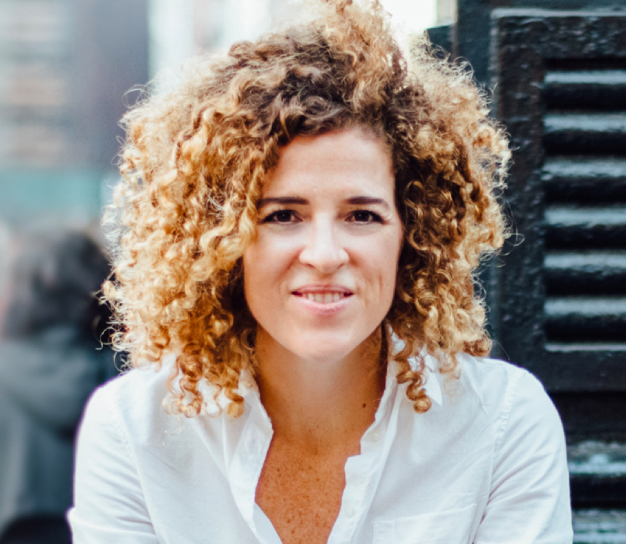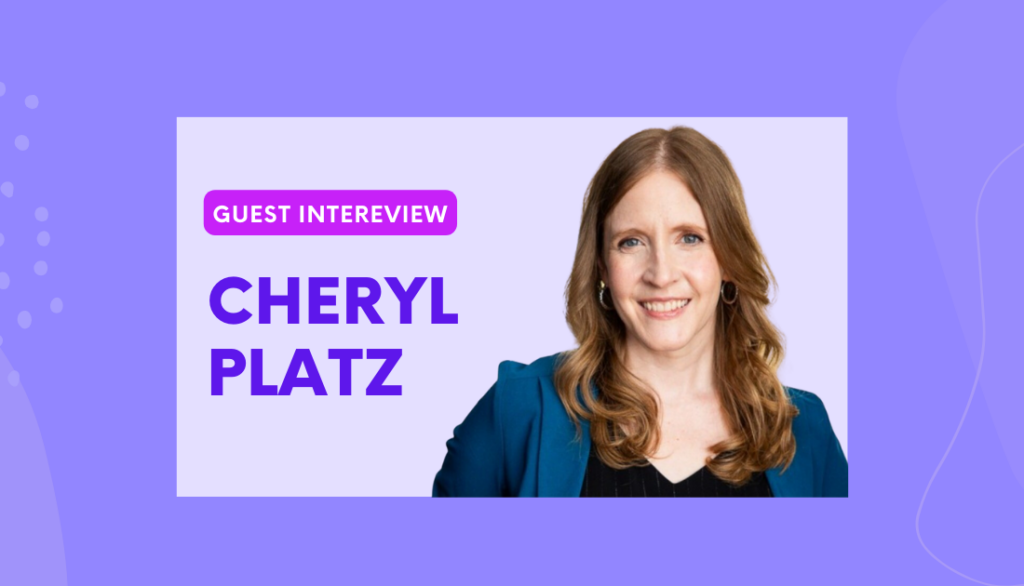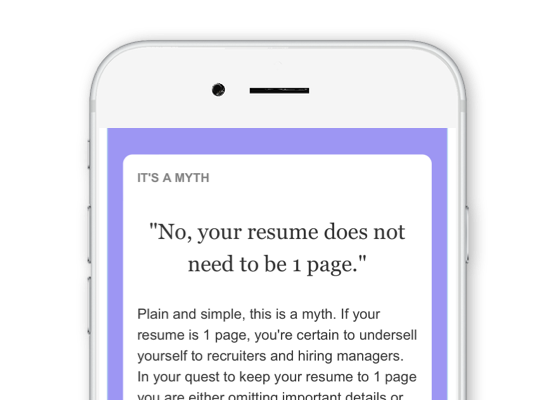Episode 67
Thinking about investing in your career? Ask yourself these 3 questions first
13 min listen
Episode 3
13 min listen

Listen to the Episode
Episode Summary
Investing in your career, and your future, is a big decision. In this episode of the Career Strategy Podcast, we dive into three crucial questions you need to ask yourself before making any big decisions about investing in your career. Whether you’re a career switcher, climber, or launcher, these questions will help you gain clarity and navigate your professional journey.
The first question challenges your willingness to do the work. Are you ready to put in the effort and apply what you learn? The second question delves into your commitment to career growth. What does career growth mean to you and how does it align with your life goals? Lastly, we explore the importance of being open to feedback. If you’re resistant to input, it’s time to reassess your readiness for professional development.
Whether you’re thinking of investing in a career coach, a professional development course, or a professional degree, these questions will help guide you towards making strategic career decisions. It’s time to invest in your career and unlock your full professional potential.
Create your dream career, and life
- Book a free Career Strategy Call to learn how we can help you
- Get our free Career Roadmap to help you navigate your career
- Check out Career Strategy Lab, our 3-month career coaching program
Watch
Discussion Questions About The Episode
- How can you embrace and use your feelings of self-doubt and imposter syndrome as indicators of what is important to you in your career or life?
- Have you ever invested in yourself and your career before? Why or why not? What factors would make you consider investing in yourself now?
- How do you define career growth, and what does it mean to you? Are you committed to pursuing career growth in your current situation? Why or why not?
- Are you open to receiving feedback and incorporating it into your career development? How do you feel about the idea of having a beginner's mindset and being open to learning from others?
- Reflect on the types of people mentioned in the episode: switchers, climbers, and launchers. Which category best describes your current career situation and goals? How does identifying your category impact your decision-making process?
Episode Transcript
Sarah Doody [00:00:00]: Am I ready to invest in myself and my career? That’s the question that we’ll discuss today, and, honestly, my answer will help you not just with big career decisions, but with life decisions as well. Now in case we haven’t met yet, I am Sarah Doody. I’m the founder and CEO of Career Strategy Lab, which is a career incubator for UX and product people who are determined to grow their careers in UX and product development and everything in between, whether it’s content strategy, writing, research, you name it. Inside CSL, we help high achievers strategically improve their career materials such as your LinkedIn, your resume, your portfolio so you can stand out in a sea of applicants. And feel really confident going into job interviews so you can ultimately get your dream job without applying to hundreds of positions. Today, I have 3 questions for you to ponder to really help you decide if you’re ready to invest in yourself and your career. I know you may have feelings about yourself and your career right now. Maybe you are worried about the grip that self doubt and imposter syndrome has on you right now or has had on you in the past.
Sarah Doody [00:01:27]: Maybe you worry that investing in yourself won’t pay off. It won’t be worth it. Or maybe you worry that other people in your life won’t support your decision, and you’ll have to deal with that. The really important thing to remember here is that all of those feelings are completely normal. Those feelings that you have mean whatever you are deciding is important to you. Right? If you didn’t care, those thoughts and feelings wouldn’t creep up. So the reframe I really invite you to consider is that instead of trying to overcome all of these thoughts and feelings, maybe consider embracing them and recognizing that they just might be shining a spotlight on things that are important to you in your career or your life. Now Before we get to the 3 questions, I want you to ask yourself.
Sarah Doody [00:02:26]: I wanna share a bit more about the types of people that we work with inside CSL so you can really explore which type of person feels most like where you’re at right now in your career. So you can make the most of these 3 questions and have the right frame of mind going into these questions. This is a step though that a lot of people miss. Because before you ask yourself these questions, you need to be really clear on where you are right now and where you want to get in the future. So who are these 3 people? They’re switchers, climbers and launchers. So let’s dive into each of those so you really understand them. 1st, switchers, people switching careers. They are teachers, health care professionals, architects, people coming from academia, etcetera.
Sarah Doody [00:03:21]: The next type of person we support in CSL are career climbers. They’ve been working in UX for a while, 5, 10, 15, some people 20 years, and they’re ready to move up the career ladder. And the 3rd type of person we support in CSL are called launchers. Launchers are brand new to the world of UX and are typically coming straight out of an education program like a college, university, or boot camp. So those are the 3 types of people we work with inside Career Strategy Lab. The switchers, the climbers, and the launchers. I want you to think about which 1 you are. Now back to that question I asked you in the beginning, are you ready to invest in yourself.
Sarah Doody [00:04:09]: I wanna get on the same page about something first. Many people go through their careers and never invest in themselves, and that is completely fine. But for people who do want to move forward at an accelerated pace and know that their career materials, their resume, their LinkedIn portfolio, interview skills, and all that need improvement, it could make sense to invest in yourself. But before you invest in anything in your career or, frankly, your life. I want you to ask yourself 3 questions because these questions are gonna help you make big decisions in the future. And I encourage you to write these down so you can save them and refer back to them later. So question number 1 is, are you willing to actually show up and do the work? No one can do this for you because it requires you. It requires your reflection on your expertise, on your experiences so far, I’m pulling out the golden nuggets of your skills, your experience, what you’ve worked on to convey why you are a good candidate.
Sarah Doody [00:05:21]: So we teach you the how of this inside Career Strategy Lab, but you have to do it. You have to put pen to paper, so to speak, and actually show up and do this. For example, Career Strategy Lab is really, what I call a hybrid course. Meaning there’s components of on demand training as well as in person live coaching. And you can do this at your own speed. Let’s say you wanna work on your portfolio. There are a ton of step by step tour tutorials you can do on your own, but you actually have to watch the video. You actually have to do what we tell you to do in the video.
Sarah Doody [00:06:03]: You actually have to open the resume template and fill in the blanks and make it yours. Otherwise, you just paid a bunch of money for stuff you’re not using and didn’t take advantage of. So the question of, are you willing to do the work? Are you willing to go through the materials and apply what you’ve learned? If so, then that’s a good sign. That means this could be a good idea for you. If not, that’s good information to know about yourself. Maybe it’s not the right time. Okay. Question number 2 is, are you committed to career growth? So career growth is not for everyone, and that’s okay too.
Sarah Doody [00:06:43]: I think this question is really about getting honest with yourself about what you want for your life and defining what career growth means to you and how career growth might be able to help you achieve some of the things you want in life as well. But being committed to career growth, it doesn’t mean that you’re going to sacrifice everything to get ahead and that it has to feel like a 2nd job. Maybe for some people, they’re unemployed and but, of course, that’s not everyone’s situation. The way I think about career growth is really strategic, not shocking. And it’s really about using what you know to help find a vision and a team to move forward. Now the kind of team and the type of vision matter. For most of our clients, they wanna be on a team that values people as humans and that has work life balance. And many of our clients wanna work on projects that help do good in the world and develop society and have impact.
Sarah Doody [00:07:45]: And if that’s what you want, then that matters. This isn’t about career growth at any expense, though. It’s about career growth that makes you feel seen, expressed, heard, valued, and really purposeful in your work. Another preconceived notion about career growth is that it’s all about speed. And we all know nothing is an overnight success. So although we do have people who implement what we teach and get promoted or get a new job very quickly, not everyone wants that. Not everyone joins this program with the intent of being in a new job in 3 or 6 months. We’ve had people who join Career Strategy Lab who didn’t want that, but they did know that in the long term, they wanted to have the foundation laid so they could make a move when they were ready.
Sarah Doody [00:08:38]: It’s not just necessarily about this current season of life. Career development is really a long term investment. So if you’re not in it for the long game, there’s no shame in that. But that’s something you wanna be clear about now so you can make really strategic career decisions. The third question is, are you open to feedback? Many people say they are, but they don’t actually want it. And I know this after working with so many people. It’s really helpful to have a beginner’s mindset. And I know that’s a little cliche, but it’s so so true.
Sarah Doody [00:09:18]: If you’re going to pay for support, then it makes sense to use it. Right? And using it means listening to feedback. So if you find maybe you are resistant to feedback, maybe this isn’t for you. Do you really want someone to look at your resume and tell you what’s wrong with it? And then are you really going to take our suggestions and run with those? I know it can be awkward to receive feedback, and sometimes it’s a little deflating, but you can’t focus on how you feel in that moment. You have to focus on how you’re going to feel after you listen to that feedback, implement that feedback, and then have a much stronger resume, for example, as a result of that cycle. A lot of people, though, wanna stop wasting time worrying about their career materials, thinking it’s not good enough, etcetera, and instead be told exactly what needs to be done and how to improve it. And if that’s what you’re looking for, then that is what we can definitely deliver to you. And I want to acknowledge that asking for feedback definitely requires vulnerability.
Sarah Doody [00:10:28]: I often I’m a little hesitant to ask for feedback myself, especially if I’ve spent a lot of time working on something. It can be scary, and that is totally okay. And I think what’s really important here is to make sure that you’re asking the right people for feedback. Right? Friends are great to ask for feedback on your resume overall, maybe spelling, grammar, etcetera. But unless your friend has worked in user experience or product or has hired people or has professionally done resumes, they might miss the details and the nuance that can make or break whether you get an interview or even a job offer. So you need to be really strategic with who you ask for feedback. And in CSL, our coaches are extensively trained by me and have now at this point looked at thousands of various resumes, LinkedIn, etcetera. And this is really important to get clear on so you can decide if career development strategy is really a good investment because it does require getting feedback, and there’s usually some ego attached to that that sometimes you just have to let go in the spirit of getting hired in the future.
Sarah Doody [00:11:45]: So those are the 3 questions to really quickly recap. Are you willing to do the work? Are you committed to career growth? And are you open to feedback? Once you have the answers to all of those questions, if you know that you are willing to put in the work and that you are committed to your long and short term career goals, goals that also honor your life goals and you’re open to feedback, then you are really set up to engage with career development differently. And the thing about investing is that it’s not just something you pay for. It’s something that actually has a calculatable ROI or return on investment. And in my experience, you are the ultimate asset. It’s always a good idea, but only if you’re willing to be committed and open to feedback and to do the actual work. When you can say that you are willing to do the work and that you are committed to this career journey and that you are open to learning and maybe doing things differently and trusting the process, then that is huge. And those are key qualities of people that we see a lot of success with, but only you can answer those questions.
Sarah Doody [00:13:06]: I can’t answer those for you. You have to know inside what those answers are. Now the return on investment in yourself will probably come up. So answering those questions honestly will give you the information to figure out what’s the likelihood that this has a good ROI. Right? And when you’re willing and you’re open and committed, you can’t really fail. You’re not doing this alone. You have a team. You have experts on your side.
Sarah Doody [00:13:37]: You just have to show up and be committed. And it might take time and it might be challenging and there might be moments where you get frustrated, but if you stay on the path and trust the process, it’s honestly really hard to fail. And I know this after working with so many people and seeing the qualities and traits of the people that get hired. Okay. So that’s all for today. I am Sarah Doody, founder of Career Strategy Lab, and this has been 3 quick questions to ask yourself to figure out when you should be investing in your career development. Now if this content has been helpful to you, if it’s changed how you think or given you some notes or a lot of notes that you’ve written down, then I would love it if you would share this with a friend, give it a like, a thumbs up, a heart, and tell other people that might benefit from this. And if you’re curious about career strategy lab, you can learn more by going to careerstrategylab.com, And you can also find me out on social media.
Sarah Doody [00:14:47]: I’m on YouTube at SarahDoody, Twitter at SarahDoody, Instagram at SarahDoodyUX at the end. And, of course, you can find me on LinkedIn as well. I hope you have a great rest of your day, and I will talk to you soon.













